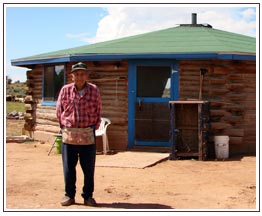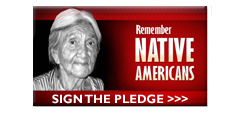More than anyone else, Community Health Reps (CHRs) visit the most remote communities to check on the most isolated Elders. More and more, these CHRs and other partners at reservation health or wellness programs call on NRC to help them improve their outcomes.
One of NRC’s goals is to provide care for the most vulnerable Americans living on poverty-stricken reservations the young and the Elderly. So we strive to be a consistent resource that CHRs and all of our Program Partners can count on. We support health programs by providing incentives that the people need and want, items such as toothpaste, shampoo, soap, and toilet paper that are hard to come by in the remote areas. People come to more health screenings, health classes, and health appointments to earn the incentives, and Elders at home are more likely to invite CHRs in when the incentives are offered. This creates a crucial window where the CHR can observe the Elder’s situation and identify any needs or health issues. Last year, NRC accompanied a CHR when she visited one such Elder named Huskie.
 |
Huskie is one of those people you wish everyone could meet. He lives in a contemporary Hogan in the Spider Rock community, through a maze of rutted out dirt ways several miles off the Canyon de Chelly road. Huskie is 80 years old. He has no transportation. He still cooks for himself but on the day we visited, he had no food that he could eat. Three years ago, Huskie had dental problems, so his teeth were extracted; he is still waiting for his dentures. Huskie is also diabetic and needs appropriate foods.
In younger years, Huskie worked for the Santa Fe and Union Pacific railroads. He also worked at a nearby mission helping other people in the Chinle community. He stays active now by cleaning his home, sweeping his yard, and racking his firewood for winter. But Huskie lives alone, and nearly 100% of the time, he is alone. Too far out for the senior center to deliver meals, and too far away for the chapter’s fuel budget, Huskie now gets one CHR visit a month. It is crystal clear why the CHR visits are so important and why NRC supports them. When we first walked in, Huskie said:
“My life hasn’t worked out so well. I’ve been through a lot of things.
But the hardest thing I’ve ever come across is being alone all the time.”
Situations like this are far too common in NRC’s service area. These are the conditions that most Americans never see. They are not visible by driving through a reservation. We share Huskie’s biggest worry that things won’t be any better for his grandchildren than they were for his generation. We want vulnerable Native American Elders to be remembered and to know that they matter to other Americans.
Download PDF >> | 

